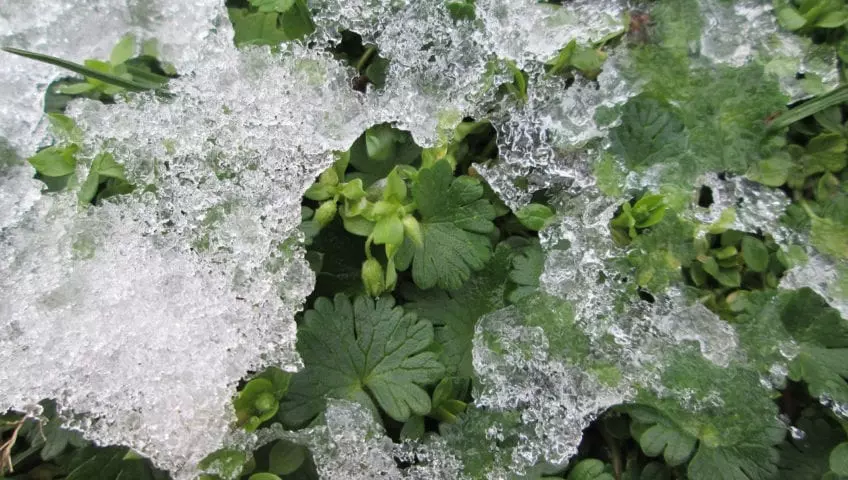Landscaping companies demonstrate the importance of preparing plants for winter. If you want your plants to enjoy robust growth when warm weather comes, prepare them amply for winter.
The biggest mistake you could make is to leave your plants at the mercy of the weather. Then you could find out just how merciless Mother Nature can be!
As one of the top landscape maintenance services in southwest Louisiana, TCLS has helped customers prepare their plants for years.
You can do several things to ensure that come spring, your shrubs, trees, perennial plants and lawn will be healthy and blooming.
Why prepare your plants for winter?
When it comes to the health of your lawn, trees and perennial plants, the “why” should always come before the “when.”
We are to help you. We offer grass cutting services to our customers in Southwest Louisiana. We also help them to preserve their plants through winter. The main reason for preparing plants for winter is so that their roots can establish themselves more firmly. Healthy roots mean a healthier bloom in spring.
When the soil freezes, it still needs to process the organic matter needed by the plants. Freezing is like insulating the soil and it encourages the processing of important organic matter.
Landscaping companies advice for preparing your plants for cold weather
This depends on the types of plants that you have. All plants, including the trees need to be prepared for winter. However, you should start with the preparation of the garden itself.
Here are a few things that lawn care services advice:
Continue watering during winter so that your plants have enough moisture to see them through the cold spell.
Pull out all the weeds. You do not want them seeding as that would cause a weed problem in spring.
Mulching is very important for the preservation of your plants through the cold weather. It is especially good for strawberry beds and perennial flowers so that it can help the plants from alternating between thawing and freezing.
It is best to consult landscaping companies for assistance before you start mulching. For example, we advise our customers to wait until after Thanksgiving to start mulching. The reason for waiting is so that the plants can go dormant and the soil can freeze. You will also find that some plants, for example, rose flowers need mounds of mulch at the bottom. Some plants need more mulch than others.
Preparing different plants for winter
- Preparing Annuals for winter
An annual is a plant that will flower and then die. It is best to collect all the seeds that you need before winter. If you would like a bloom in spring, plant the seeds before the appearance of the first frost for springtime growth.
If you need cuttings, just cut them and bring them indoors before the onset of winter. You might also dig out bulbs and store them in a dark place.
Pull out all the dead plants and as we mentioned, apply a good layer of mulching.
- Preparing trees for winter
Most people are of the notion that trees do not need any preparation for winter. Now, as lawn service companies will tell you, trees are plants and they have their needs too.
If you have young trees, you will need to wrap some wire netting around them to protect them against animals. If they are on exposed ground, you may have to erect wind and snow breakers around them.
You will also need paper tree wrap, which is best for protecting the thin-barked trees from cracking. When exposed to winter, the thin barks are likely to crack. The wrapping will prevent that.
Trees should be watered throughout winter. We advise our customers to water the evergreens frequently to enhance their growth. That green leafage needs nutrients from the roots to flourish.
If you live in an area is exposed to these cold and dry winds, your evergreen trees and shrubs are likely to dry fast. This is called winter desiccation. Water them when there is no wind so that the soil retains moisture. If your shrubs are in an exposed place, you may want to create a windbreak to protect them.
- Preparing Perennials For Winter
Southwest Louisiana is home to perennials such as False Heather, Sage, Day Lily and others. The reason why these plants have earned themselves the name perennial is because they go into hibernation in winter. They bloom in the warm seasons.
Perennials are easy to prepare for winter. Just cut the dead stems, apply a layer of mulching and leave them to their tactics. However, no two perennial plants are the same. Different types of perennial plants may require different types of care.
Rake the old mulch and after the soil freezes after Thanksgiving, add a good layer of new mulch. The reason for waiting until the soil is frozen is so that rodents do not burrow in the soil under the mulch.
- Preparing roses for winter – what landscaping companies say
No one likes to lose their roses. Perhaps it is the sentimental value behind their flowers. They are not too hard to prepare for winter. If you take good care of your roses to see them through winter, you are going to get a good bloom of lovely rose flowers in spring.
Trim the roses carefully. Get burlaps and stuff them with straw or dry leaves. Tie them around the rose flower from the bottom upwards. This will help protect the roses from the cold. However, note that pruning is only advisable for places that experience mild winters. If your area experiences extreme winters, do not prune the roses.
Do not apply fertilizer to the roses once summer is over. Remove the old mulch and apply new layer of mulch before the appearance of the first frost. After the first frost, add more mulch around the base of the plant.
During winter, there will be some warm days. Take advantage and water your roses then, taking care not to overwater them.
If you do this, you will have healthy roses in spring.
Preparing grass for winter
When offering lawn care services to our customers, they always ask us how they can prepare their lawn for winter.
Here are the most important things to do:
- Cut the grass to 0.75 inches (cold winters) or 1.5 inches (warm winters). Ask a lawn care company because different grasses have different needs.
- You will need to aerate the lawn. Use a lawn aerator that punches small holes in the ground, removing chunks of soil.
- Apply a natural fertilizer without phosphate if you did not apply during summer.
- Reduce irrigation if you experience mild winters or stop it completely for serious winters.


